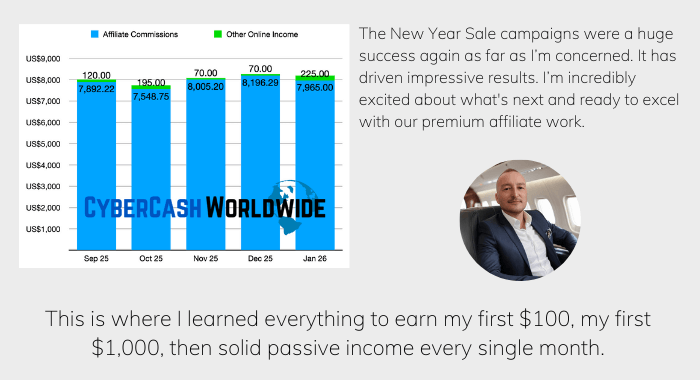Starting a home-based business like ecommerce or affiliate marketing brings you face-to-face with a decision most people get completely wrong. Everyone assumes forming a company automatically means you're "more professional" or "ready for success," but the reality flips conventional wisdom on its head.
The choice between self-employment and incorporating affects everything from your daily cash flow to how you'll exit your business five years from now. Most entrepreneurs make this decision based on what sounds impressive rather than what actually works for someone sitting in pajamas selling products online.

The Cash Flow Reality Nobody Talks About
Most business gurus preach company formation like it's the holy grail, but your bank account tells a different story entirely.
Self-employed individuals often see money hit the account faster, face fewer banking restrictions, and avoid the monthly fees that companies rack up. The psychology of money flow changes dramatically when you're personally liable versus hiding behind corporate veils. Your relationship with risk shifts completely when every dollar earned or lost flows directly through your personal financial ecosystem.
Personal Banking vs Corporate Banking Wars
Personal accounts process payments from platforms like Shopify, Amazon, or ClickBank without the red flags that corporate accounts trigger.
Banks treat personal accounts receiving business income as routine, especially for amounts under $10,000 monthly. The approval process for personal accounts takes minutes, while corporate accounts demand business plans, articles of incorporation, and weeks of back-and-forth documentation.
Corporate banking transforms into a bureaucratic nightmare that kills momentum fast. Opening a business account requires multiple trips to the bank, notarized documents, and often a minimum balance of $1,500-$5,000 just to start. Some banks charge $25-50 monthly maintenance fees for business accounts, eating into profits before you've even made your first sale.
Tax Payment Timing Shocks
Self-employed individuals pay quarterly estimated taxes, giving them three months to generate cash for each payment.
This creates natural cash flow cycles where you collect revenue, reinvest in inventory or advertising, then pay taxes on profits. The quarterly system forces better money management since you're constantly aware of upcoming tax obligations.
Companies face payroll tax deadlines that hit every two weeks or monthly, regardless of revenue generation. Even single-member LLCs electing corporate taxation must pay themselves regular wages, creating fixed expenses that don't fluctuate with sales. This steady drain continues even during slow months when affiliate commissions drop or ecommerce sales stagnate.
The Legal Protection Illusion
Everyone believes companies provide bulletproof legal protection, but this myth crumbles under real-world scrutiny. Personal guarantees on business loans, credit cards, and leases pierce the corporate veil instantly. Insurance costs often exceed the liability protection value, especially for digital businesses with minimal physical assets. The legal protection argument loses strength when you examine how most home-based businesses actually operate day-to-day.
Personal Guarantee Reality Check
Nearly every business credit card, equipment loan, or commercial lease requires personal guarantees from business owners.
Banks and landlords know that shell companies provide zero security, so they demand your personal assets as collateral anyway. This personal backing negates the primary reason most people incorporate in the first place.
Product liability insurance costs $800-2,000 annually for ecommerce businesses, while general liability adds another $500-1,500. Self-employed individuals often purchase identical coverage at similar rates through professional associations or insurance brokers. The protection difference between personal and corporate insurance policies is minimal for most online businesses.
Lawsuit Targeting Strategies
Lawyers pursuing home-based businesses typically sue both the individual and the company simultaneously.
This dual-targeting approach eliminates any corporate protection advantage since personal assets remain exposed regardless. Smart attorneys know that single-person companies rarely maintain proper corporate formalities, making veil-piercing arguments successful.
Self-employed individuals actually present smaller lawsuit targets since there's no corporate entity suggesting deeper pockets. Plaintiffs' attorneys often assume incorporated businesses have more assets worth pursuing than sole proprietors. The psychological impact of "suing a company" versus "suing an individual" changes settlement dynamics significantly.

The Hidden Tax Landmines
Tax advantages get thrown around as company formation benefits, but the calculations reveal surprising truths. Self-employed individuals claim deductions that companies cannot, particularly the home office deduction and vehicle expenses.
Corporate tax rates sound attractive until you factor in double taxation, additional filing fees, and required bookkeeping complexity. The real tax burden often favors self-employment, especially in the crucial first two years when most businesses struggle.
Home Office Deduction Gold Mine
Self-employed individuals claim home office deductions worth $1,500-5,000 annually without corporate restrictions.
The simplified method allows $5 per square foot up to 300 square feet, creating automatic $1,500 deductions for dedicated workspace. Companies renting space to owners create taxable income and complex documentation requirements.
Corporate home office arrangements trigger imputed income calculations that eliminate most benefits. When companies rent space from owner-employees, the IRS scrutinizes fair market rent calculations and proper documentation. The administrative burden often exceeds the tax benefit, creating paperwork without profit.
Business Expense Flexibility
Self-employed status allows aggressive deduction strategies that corporate structures complicate unnecessarily.
Business meals, travel, equipment purchases, and professional development expenses flow directly through Schedule C without corporate approval processes. The IRS treats reasonable business expenses more favorably for sole proprietors than corporate reimbursements.
Corporate expense reimbursements require formal policies, documentation, and potential tax consequences for owners. Employee-owners must submit expense reports, maintain receipts, and follow corporate procedures even when they're the only employee. Accountable plans and non-accountable plans create tax complications that self-employed individuals sidestep entirely.
The Scaling Paradox
Conventional wisdom suggests companies scale better than self-employment, but home-based businesses defy this logic completely. Self-employed individuals often scale faster initially since they avoid corporate overhead and bureaucracy.
The flexibility to pivot quickly, test new products, or abandon failing strategies becomes hampered by corporate structures. Most successful home-based businesses hit $100,000-300,000 in revenue before corporate benefits outweigh the disadvantages.
Decision Speed Advantages
Self-employed entrepreneurs make inventory decisions, pricing changes, and marketing pivots within hours rather than days. There's no board meetings, corporate resolutions, or multi-person approval processes slowing down critical business moves. When a trending product appears on social media, self-employed sellers can source and list it before companies finish discussing the opportunity.
Corporate structures introduce layers of decision-making that kill time-sensitive opportunities in fast-moving markets. Even single-member LLCs create psychological barriers where owners "consult with the company" instead of making immediate decisions. The formality that sounds professional actually reduces competitiveness in dynamic online markets.
Profit Reinvestment Flexibility
Self-employed individuals reinvest profits immediately without corporate distribution restrictions or tax complications. Spotting a successful product variation or advertising opportunity allows instant capital deployment from the same bank account. The money flows seamlessly from revenue to reinvestment without corporate formalities.
Companies must navigate distribution rules, potential tax consequences, and proper documentation for owner withdrawals. Taking money out for reinvestment requires corporate resolutions, proper characterization as salary or distribution, and potential tax filings. The process creates delays that cost opportunities in competitive markets.
The Exit Strategy Surprise
Most people assume companies sell more easily than self-employed businesses, but the opposite proves true for most home-based operations.
Buyers of small online businesses care more about revenue streams, customer lists, and operational systems than legal structure. Self-employed businesses often command higher multiples since buyers avoid inheriting corporate compliance issues, back taxes, or legal liabilities. The exit equation changes dramatically when you're selling cash flow rather than assets.
Buyer Preference Patterns
Business brokers report that buyers prefer acquiring assets from sole proprietors rather than purchasing corporate stock.
Asset purchases allow buyers to avoid inheriting unknown corporate liabilities, tax issues, or compliance problems. The clean slate approach appeals more than assuming corporate baggage from previous owners.
Self-employed businesses transfer more easily since there's no corporate structure to dissolve or reorganize. Buyers simply purchase the business assets, customer lists, and operational systems without corporate succession planning. The simplicity reduces legal fees and speeds transaction completion times significantly.
Valuation Multiple Reality
Online businesses operated as sole proprietorships often sell for higher earnings multiples due to cleaner financial records.
Buyers can easily verify income through personal tax returns and bank statements without corporate accounting complications. The transparency increases buyer confidence and justifies premium pricing.
Corporate businesses under $500,000 in value often face valuation discounts due to compliance overhead that transfers to new owners. Buyers factor in ongoing corporate maintenance costs, required bookkeeping complexity, and potential compliance issues when calculating offers. The corporate structure that seemed advantageous becomes a liability during sale negotiations, doesn't it?
Self-Employed vs. Company: What's the Best Path for Your Home Business?
The choice between self-employment and incorporation for your home-based business depends far more on your specific situation than generic advice suggests. Most entrepreneurs rush into corporate formation based on prestige rather than practical benefits, creating unnecessary complexity and expenses.
Self-employment often provides superior cash flow, tax benefits, operational flexibility, and exit options for the first several years of business operation. The decision becomes clear when you focus on building profitable operations rather than impressive-sounding legal structures that may actually hinder your success.

